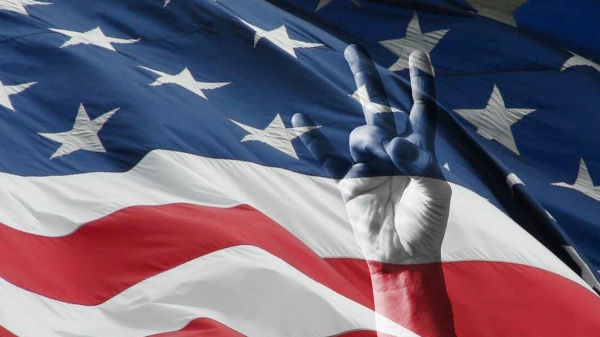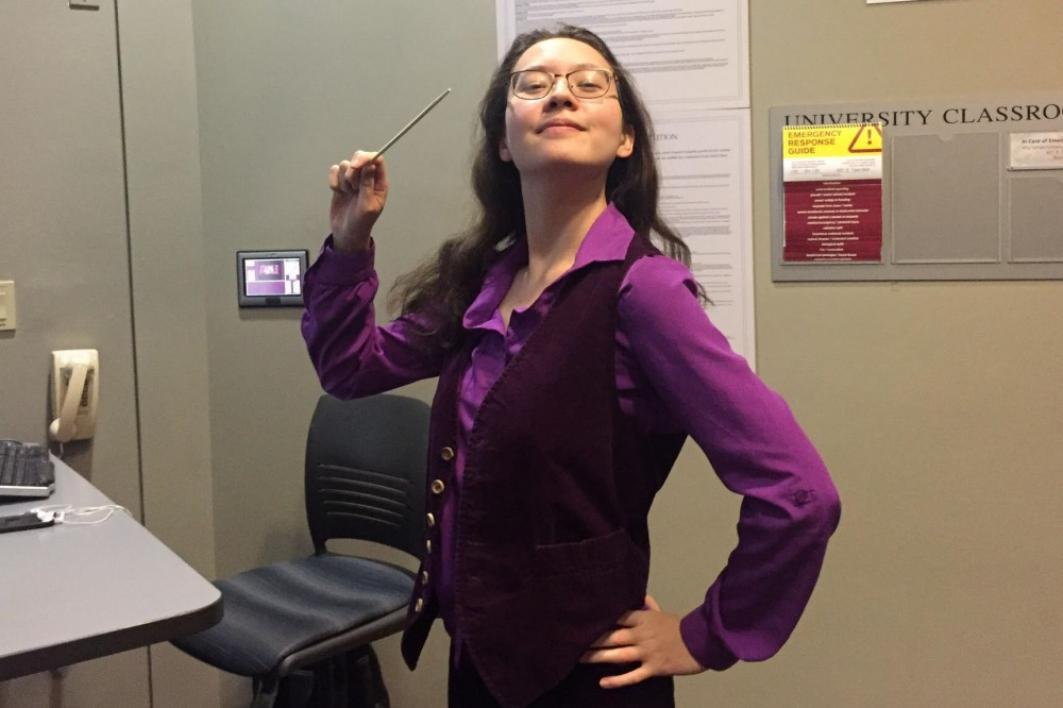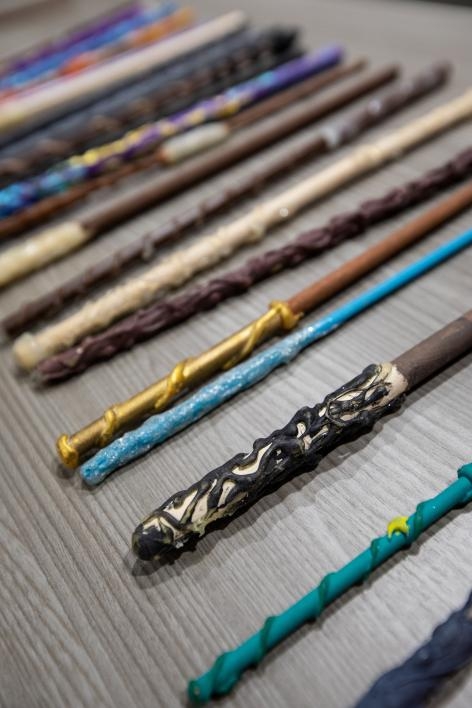ASU creative writing graduate is a wizard with words

Throughout her ASU career, graduating English major Kimberly Terasaki has been a member of a Harry Potter-themed campus club named Dumbledore's Army.
Editor’s note: This is part of a series of profiles for spring 2019 commencement.
Graduating Arizona State University student Kimberly Terasaki has known since she was a child that she wanted to be a writer.
That a book series about a boy wizard was “birthed” the same year as she was may have helped to inspire her career choice; in essence, Terasaki and Harry Potter grew up together. But, she said, the magic of Hogwarts was only mostly responsible for the direction of her journey.
“My mother read the first book to me when I was 4,” explained Terasaki, who is a Barrett, The Honors College student and grew up in Phoenix. “I liked the movies, but I didn't read any of the other books until I was almost 12, after I had already ‘decided’ to become an author.”
In a huge step toward her goal, Terasaki is completing a Bachelor of Arts in English (creative writing) this spring with a minor in sustainability. She said that during her ASU career, the wizarding world has continued to serve as a frame for her social experiences.
“Harry Potter has certainly made me who I am today; half the friends I've had in my life I got through Harry Potter,” she said.
Notably, Terasaki was president of Dumbledore’s Army, a Harry Potter-themed ASU campus club. The club hosts all kinds of activities throughout the year, including an annual Yule Ball. Most recently, “the DA,” as it is colloquially known, participated in the Department of English’s ASU Open Door events, coaching youngsters on the art of wandmaking.
Terasaki joined the DA on a whim her first year and found a sense of belonging there. “This just seemed like a really great way to make friends and get out there,” she told The State Press in 2017. “Having this community based around something we all love and in some ways may have changed our lives — it’s something really special.”
We asked Terasaki a few more questions about her time at ASU and what’s next.
Question: What was your “aha” moment, when you realized you wanted to study in your field?
Answer: I have loved storytelling since I was a toddler. I cannot say there was a single "aha" moment that I can remember, but during fifth grade, I started sharing my stories with my teachers and decided I wanted to be an author.
Q: Why did you choose ASU?
A: It made sense; it was close to home (and warm), it was affordable yet had many resources at my disposal, Barrett allowed me a first-class education at a third of the usual price, and it had many clubs based around my specific interests.
Q: Which professor taught you the most important lesson while at ASU?
A: Tie between two professors: (Barrett professor) Mary Ingram-Waters taught me that while certain sects of academia might get more disdain than others, to persevere and keep researching, especially if it's your passion. Professor Markus Cruse (in the School of International Letters and Cultures) taught me that students can sometimes educate their teachers.
Q: What’s the best piece of advice you’d give to those still in school?
A: Keep track of dates/deadlines but also don't forget to live in the moment; don't be afraid to be spontaneous. Don't be afraid to make friends or go out on your own (unless for required group projects, of course).
Q: What was your favorite spot on campus, whether for studying, meeting friends or just thinking about life?
A: Hayden Library for studying, as I love being around books and it's just a good place to work. Memorial Union for meeting friends, as there's plenty of space and food options for everyone. My favorite place on campus overall is probably the area around Old Main and the Virginia Piper house: the green grass, the flowers (the roses are blooming, just in time for graduation pictures!), the buildings that have been focal points of this campus since well before my parents attended, the fountain, the field where I've made many great memories with friends.
Q: What are your plans after graduation?
A: I am taking a gap year in order to apply to graduate school and teaching abroad programs. I hope to work for the Democratic Party, canvassing and registering voters in preparation for the 2020 election.
Q: If someone gave you $40 million to solve one problem on our planet, what would you tackle?
A: Education, specifically the education of women and girls around the world. Being a college educated woman and the daughter of two teachers, I know how important education it is ... yet it is unfortunately not made available to those who need it most. Education is essential to the betterment of humanity, whether it be learning about hygiene, nutrition, technologies, math, science, history, language, reading, writing or a thousand other aspects of the world and the human race that everyone should know.
More Law, journalism and politics

ASU experts share insights on gender equality across the globe
International Women’s Day has its roots in the American labor movement. In 1908, 15,000 women in New York City marched to protest…

ASU Law to offer its JD part time and online, addressing critical legal shortages and public service
The Sandra Day O’Connor College of Law at Arizona State University, ranked 15th among the nation’s top public law schools,…

ASU launches nonpartisan Institute of Politics to inspire future public service leaders
Former Republican presidential nominee and Arizona native Barry Goldwater once wrote, "We have forgotten that a society…



